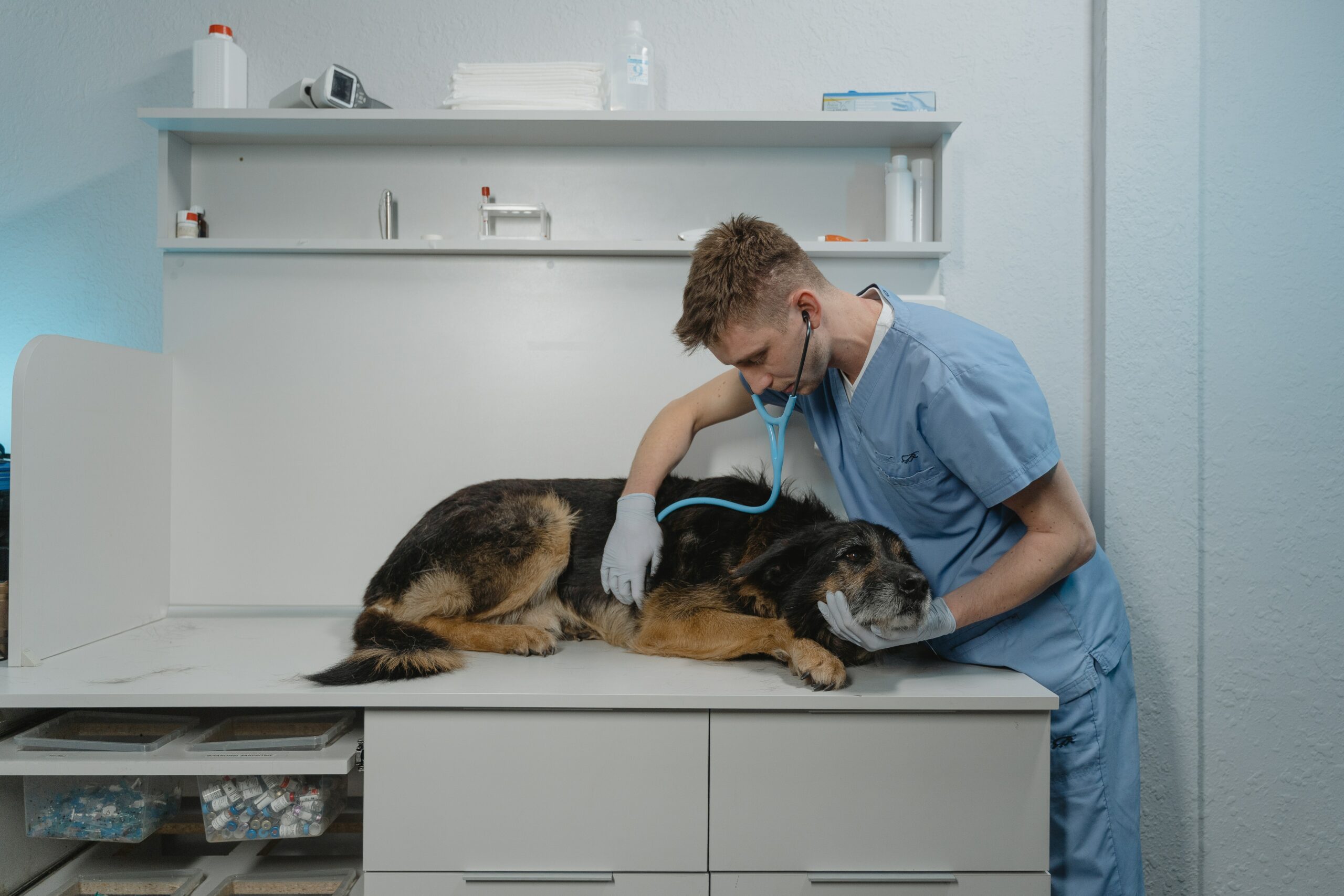Degenerative myelopathy is a heartbreaking disease to watch your dog go through. Even though it is painless, it can progress so fast that your once bubbly dog can be rendered weak and helpless in less than 6 months. Learning about it will help you be prepared for any situation.
What Is Degenerative Myelopathy?
Degenerative myelopathy (DM) is a disease that affects a dog’s spinal cord. Degenerative myelopathy in dogs mainly affects older dogs. The condition starts gradually and is challenging to spot at the beginning since it is painless. However, it will progress and have other symptoms that get worse as time goes on.
Causes of Degenerative Myelopathy
While the leading cause of degenerative myelopathy is unknown, there have been speculations that it is caused by certain dogs’ genetic or DNA makeup. When it was first discovered, it mainly affected German shepherds and veterinarians referred to as German shepherd degenerative myelopathy. However, later on, it was found in other breeds, and the only common thing was the age of the dogs.
Signs of Degenerative Myelopathy
At the start of the condition, it is easy to miss the signs. You might think that your pet is a bit clumsy or just goofing around. Learning how to spot these symptoms will ensure that you can get your dog the help it needs:
- Wobbling when standing still
- They can be easily pushed over
- Their feet scrape on the ground as they walk
- They have difficulty sitting or standing up
- Abnormally worn out toenails
- Walks by swaying their hips
- They drag their back paws
While these are the signs at the start of the disease, more symptoms develop when the condition gets worse. Here are some of the symptoms the dog has when the disease worsens:
- Urinary and Fecal Incontinence
- Infections
- Pneumonia
- Organ failure
- Muscles waste away
Breeds That Are More Likely To Get Degenerative Myelopathy
Since there is no way to tell if your dog has degenerative myelopathy, it helps to know which breed is susceptible to the condition. That way, you know if you should get the pet you want or look for other options. Here are the main breeds that are more likely to get DM:
- Eskimo dogs
- Mountain dogs
- German shepherd
- Borzoi
- Boxers
- Poodles
- Irish setters
- Golden retrievers
- Shetland sheepdog
- Wild fox terrier
- Cardigan Welsh corgis
- Pugs
How Do You Diagnose Degenerative Myelopathy?
One of the hard things to do is come up with a sure diagnosis of degenerative myelopathy. There are ways that the veterinarian can use to eliminate other conditions, and then you are sure that your dog has DM. The vet will take x-rays of your dog’s spine and might also do a spinal tap and have it tested. Despite all this, degenerative myelopathy is only fully diagnosed after the dog dies and the doctor gets to see the dog’s spine.
Treatment Options for Degenerative Myelopathy
So far, there is no known cure for degenerative myelopathy, but there are ways for you to ensure that your dog is as comfortable as they need to be as the disease progresses. Here are the main things you can do to make your dog’s life comfortable:
- Water therapy – Just the same way water therapy works for patients with joint issues, it is known to help dogs. Having them in the water gives them a chance to exercise without feeling the strain on their muscles.
- Good nutrition – It might not cure degenerative myelopathy, but it will help the dog fight off the disease better. Ensure you give your dog enough nutrients to help fight any other infections that might come up due to the DM.
- Maintain weight – The heavier your dog gets, the higher the chance that the condition will worsen. Ensure the dog maintains a healthy weight to prevent further complications.
Degenerative myelopathy might seem like a death sentence, but it does not have to be so. Ensure you keep your pet happy and active. Talk to your vet and figure out a treatment plan to keep your pet as comfortable as possible.
photo credit: Photo from Pexels
Love our content? Share it with a friend or link it to social media. Like short clips of cute household pets? Training tips? Follow us on instagram @nydognanny or on YouTube at nydognanny. Have some news you needs to get to dog and cat parents stat? Email info



